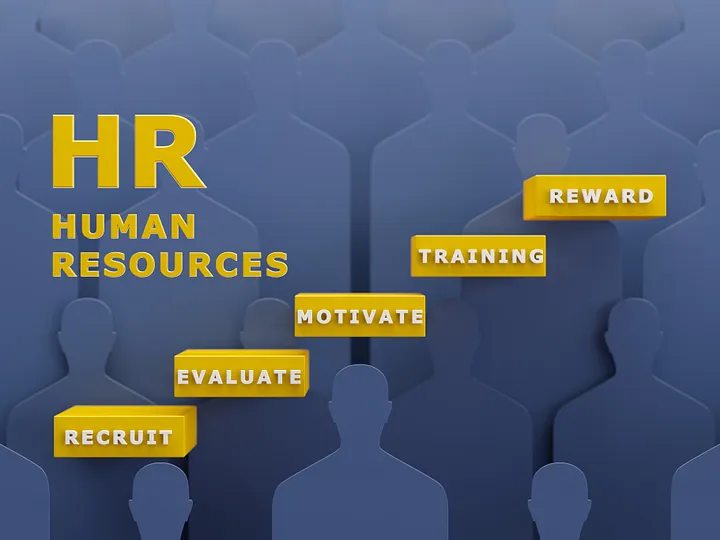The hospitality sector has always danced to a faster rhythm. It’s a world where service excellence collides with razor-thin margins, and where every smiling welcome rests on the shoulders of a well-supported team. For HR leaders, the challenge isn’t simply filling rotas or handling disputes — it’s curating a culture where people don’t just work, they flourish. With high turnover still haunting the industry, rethinking HR isn’t just optional. It’s urgent.
Here are ten field-tested strategies to help HR leaders in hospitality shift from reactive firefighting to proactive, people-led transformation.
1. Inclusion: The Heartbeat of a Resilient Culture
Inclusion must go deeper than tick-box exercises. Diversity may get talent through the door, but it’s inclusion that inspires them to stay, grow, and give their best. True inclusivity is woven into the culture where every voice carries weight and individuality is welcomed.
Encourage dialogue across departments, champion ERGs, and make sure leadership models inclusive behaviour. In my days overseeing teams across luxury hotels, it was always the workplaces that felt like communities that delivered the most exceptional service.
2. Let Data Do the Talking
Gut instinct alone won’t future-proof your HR strategy. It’s time to let insights lead. Whether it’s staff churn in the first 90 days or recurring absenteeism patterns, the numbers often tell a story before people do.
If a single outlet shows consistently high attrition, ask why. If team morale dips during a seasonal peak, dig into rostering and recognition patterns. Data is your dashboard — use it to steer, not just to report.
3. Compensation is the Floor, Not the Ceiling
A fair wage keeps the lights on. But meaning, flexibility, and belonging — that’s what sparks loyalty. Today’s employees, particularly Gen Z and Millennials, are designing their lives around more than just pay slips.
Flexible shifts, mental wellness support, or even handwritten thank-you cards after a tough week — it’s the seemingly small gestures that create lasting loyalty. Hospitality is, after all, about personal touches — start with your own people.
4. Nurture Potential, Don’t Just Fill Gaps
In many hotels I’ve worked with, the phrase “we have no time for training” was sadly common. But that mindset is short-sighted. If your people see no path forward, they’ll find one elsewhere.
Start with cross-training. Offer shadowing opportunities. Create a culture where learning is as natural as clocking in. When staff feel invested in, they return the favour tenfold in loyalty and performance.
5. Simplify the Recruitment Race
Hiring in hospitality often feels like trying to fill a leaking bucket. But recruitment doesn’t have to be rushed chaos. Smart systems can restore calm and consistency.
Automate the admin — interview scheduling, applicant screening, and onboarding paperwork. Technology won’t replace your instinct for a good fit, but it will give you the time to make it count.
6. Onboarding: Your First Promise to Deliver
The first day isn’t just a formality. It’s a first impression, a tone-setter, and an early test of your culture. If new starters feel lost in a maze of policies, don’t be surprised if they quietly vanish.
Introduce peer mentors. Share stories of success. Check in regularly in those crucial early weeks. Great onboarding isn’t a policy — it’s a welcome mat with purpose.
7. Fix Payroll Woes Before They Become Cultural Cracks
There’s no quicker way to sour trust than getting someone’s pay wrong. Errors signal chaos, not care. They chip away at confidence and morale.
Prioritise a system that delivers accuracy and transparency. Let employees access payslips easily. Empower them to manage personal details through intuitive self-service portals. A reliable payroll process is a quiet but powerful symbol of respect.
8. Communication Should Clarify, Not Complicate
I’ve walked into too many hotel staff rooms filled with confused shift schedules and half-heard announcements. Clarity in communication is everything. When expectations are unclear, performance and morale slip.
Establish regular rhythms of dialogue — not just top-down, but bottom-up too. Town halls, anonymous feedback channels, even quick daily huddles — they all help create a culture where information flows and voices are heard.
9. Turn Team Members Into Torchbearers
Your brand isn’t built in the boardroom — it’s shaped by every interaction on the floor. And your employees are its daily storytellers. Make their experience one worth sharing.
Celebrate wins — big and small. Encourage referral schemes. Involve them in operational decisions. When people are proud of where they work, that pride becomes their strongest marketing tool.
10. Respect is the Foundation, Not a Perk
Every hospitality success story I’ve witnessed shares one thing in common: mutual respect. It doesn’t require fancy incentives — just consistency in how people are treated.
Start with the basics. Listen with intent. Be flexible when it matters. Say thank you — and mean it. Cultures of excellence are built on trust, and trust is built one respectful interaction at a time.
The Road Ahead: People First, Always
Transforming HR in hospitality doesn’t require revolution — just intentional evolution. These ten strategies aren’t theoretical. They’re built from the floorboards up, inspired by real teams in real venues, striving for better.
Remember this: the guest experience starts with the employee experience. If you get the people part right, everything else — from service scores to profitability — tends to follow.





